Content
- Rethinking ocean governance: interview with Laura Ramajo
- STeP Leadership Conference 2024: Consensus and Inclusion for Informed Decision Making
- Climate change, health, and public policies: evidence from Lancet Countdown
- Meeting of the Advisory Board of the IAI’s Science Diplomacy Center
- IPCC summaries summarize opportunities for climate action
- Visions of change: innovation, conservation and restoration at the service of the environment
IAI Newsletter 2/24
Rethinking ocean governance: interview with Laura Ramajo
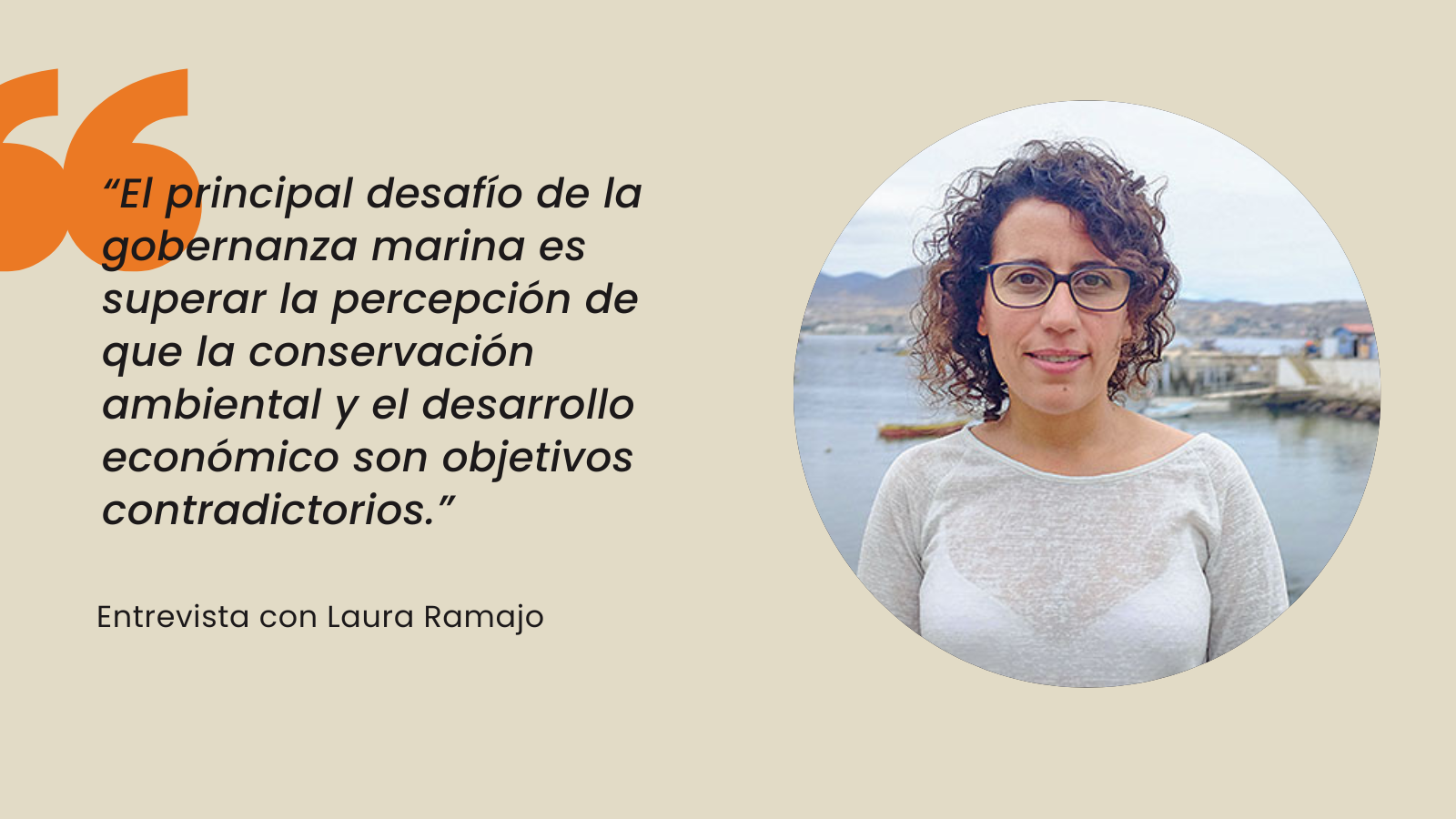
Laura Ramajo is an alternate member of the IAI’s Scientific Advisory Committee. She is a biologist and has a doctorate in global change and is an adjunct researcher at the Center for Climate and Resilience Research (CR2) in Chile.
What are the challenges of marine governance in the face of economic development and how can conservation and economic growth be aligned?
First, it must be made clear that economic development is not opposed to conservation or environmental protection. Scientific evidence is very clear in identifying that the two go hand in hand.
We know, for example, that wildfires or water crises have impacts on the economy and gross domestic products because now the state will have to allocate many funds to address the related effects. When we understand that a healthy ecosystem is more productive, we understand that the quality and abundance of resources are also greater. But a problem we have is the overexploitation of resources. We know that illegal fishing is very high and probably exceeds the total landings of fish and other organisms that are legally extracted. The latest studies indicate that we have overexploitation of marine resources, which comes from both overfishing and illegal fishing.
“The goal should be to build socio-ecological systems that are resilient and capable of reaching agreements to avoid socio-environmental conflicts”
Governance has not been adequate in protecting these environments. Not much has been said about the role of salmon farms, for example, in some areas such as the fjords of Chile and Argentina. Efforts are being made for these industries to operate in a cleaner manner considering the carrying capacity of the fjords. But this governance, this decision-making, should incorporate all actors, beyond the State and the different representatives of industries or sectors such as artisanal fishing. This space is shared with coastal tourism and other social actors who occupy the same territory and must be part of this decision-making.
Do you consider that there is an effective reception of scientific recommendations in the Americas? What is the process for raising the concerns of indigenous peoples to decision-makers?
I have had the opportunity to participate, for example, in the construction of the Regional Climate Action Plan for the Coquimbo region, which is a region located in the central-north of Chile, which is quite vulnerable to climate change because it has experienced a sustained decrease in precipitation over the last decade.
It was quite interesting to participate and lead this consultancy we did for the Ministry of Environment in Chile, because we had the opportunity to generate a working group that was practically all scientific, coming from academia and science, to also generate, in a participatory manner, these plans together with the different institutions and different social groups that exist in the region, each with their own interests and also their recommendations and ideas to address the effects and impacts of climate change.
“In Chile, the Climate Change Framework Law establishes that all decisions made must have a scientific basis.”
In the last two years, we have been participating together with a research group from the Catholic University of the North and other researchers from other universities in the country in supporting the construction of the municipal climate change plan in Rapa Nui. We have had the opportunity to conduct a risk study and also to gather from the population and from different sectors what are the most important actions for the protection of archaeological and natural heritage, the tourism sector, and the artisanal fishing sector, which are socio-economic and heritage sectors quite important for the island.
In my opinion, it is quite important for science to be involved in these public policy creation processes. In Chile, for example, the Climate Change Framework Law establishes that all decisions made must have a scientific basis.
How should environmental education be deepened to improve sensitivity towards oceans and their ecosystems?
Education plays a crucial role in changing public perception about human impacts on the oceans. It is important to use diverse platforms to inform and educate the population about how our actions affect the seas. Strategies such as awareness campaigns, formal and informal education, and participation in practical activities can help foster greater respect and care for our oceans. These efforts must be inclusive and encompass the whole society to ensure significant changes in how we value and treat marine resources. Additionally, it is crucial that environmental education fosters community empowerment so that people become active agents of change in ocean conservation.
Where should efforts be focused to control plastic proliferation? What kind of obligations should countries assume?
The issue of plastic is quite important because, initially, it was a pollution issue. The ocean was full of plastic, and many terrestrial areas were also full of plastic. Then, over time, scientific research identified that these plastics, through the movement of water and waves, break down into small particles that can range from slightly larger particles to very, very small particles that are microscopic and that we do not see in the water. Many of these settle on the ocean floor, and others are consumed by fish and filter-feeding animals. These plastics also contain chemical contaminants.
“It is necessary to reach an international treaty to end plastic pollution because it affects the health of ocean ecosystems and other ecosystems, but also affects human health.”
This problem became a health issue, not only the health of the oceans but also human health. Today, there are scientific studies that identify the presence of microplastics in people’s blood, in tissues such as the brain, or even in breast milk because we ingest them, and our bodies are not capable of excreting and removing them from the organism. Additionally, many of the contaminants in these microplastics are endocrine disruptors that cause health problems in both humans and animals. Filter-feeding animals consume these microplastics; thinking they are satiated, they stop eating their food and end up dying. We have seen these images of dead whales with stomachs full of plastics and other waste. It is necessary to reach an international treaty to end plastic pollution because it affects the health of ocean ecosystems and other ecosystems, but also affects human health.
In events like the recent wildfires in a coastal city like Valparaíso, how can a country use its resources to address these challenges?
The recent fires in the Valparaíso region are a brutal reminder of the consequences of climate change, such as increased heatwaves and the megadrought that has been affecting Chile for over a decade. These phenomena exacerbate the risks and intensity of forest fires. In response to this, strategies such as desalination of seawater have been considered as adaptation measures to address water scarcity. However, beyond desalination, we need to rethink our land management and conservation practices. For example, integrating native vegetation into plantations can serve as firebreaks and help reduce landscape flammability.
Full interview:
IAI Newsletter 2/24
STeP Leadership Conference 2024: Consensus and Inclusion for Informed Decision Making
The STeP Leadership Conference 2024, organized by the Inter-American Institute for Global Change Research (IAI), took place from April 22nd to April 24th in Antigua and Guatemala City, Guatemala. The focus was on consensus and inclusion for informed decision-making. The event brought together prominent leaders and experts in science and diplomacy working in global change and fellows of the IAI’s Science, Technology, and Policy (STeP) Program.
NOTA2.png)
An excursion and a warm official welcome in Tecpán, Iximché, the ancient capital of the Kakchikel kingdom and an integral part of Maya culture, marked the first day of the conference. The inaugural session, dedicated to a transdisciplinary approach and decolonization, explored the relationship between local perspectives and scientific expectations and how to integrate indigenous knowledge into research and decision-making related to global environmental change. One of the speakers was Ramiro Batzin, Executive Director of the Sotz’il Association and Coordinator of the International Indigenous Forum on Biodiversity (FIIB).
NOTA2.png)
On the second day, various sessions addressed key topics. María Schmukler presented the results of the IAI’s Small Grants Program, highlighting lessons learned from working with social actors on research projects. Additionally, the new curriculum for scientific diplomacy, a free online course to be launched this year in English, Spanish, and Portuguese, was introduced.
The third and final day of the conference focused on preparedness for action. STeP fellows participated in simulated negotiation sessions on the United Nations Framework Convention on Climate Change (UNFCCC) and shared their views on international negotiation processes. A discussion session on the STeP leadership declaration was also held, during which participants debated how to translate words into tangible actions.
NOTA2.png)
The conference concluded with a joint session organized by the Lancet Countdown Latin America and the IAI, where scientific diplomacy projects developed by STeP fellows were presented. The event underscored the importance of generating scientific evidence to inform local and regional public policies related to climate change and health.
NOTA2.png)
The STeP conference participants were:
- Marcella Ohira, Deputy Executive Director, Capacity Building Director, IAI (Uruguay)
- Kim Portmess, STeP Program Leader, IAI (Panama)
- Branislav Pantović – STeP Fellow, IAI (Argentina)
- Gabriela Teixeira Duarte – Brazilian Platform for Biodiversity and Ecosystem Services (Brazil)
- Alice Ramos de Moraes – Brazilian Platform for Biodiversity and Ecosystem Services (Brazil)
- Larisse Faroni – BPBES/Office of the Federal Deputy Rodrigo Agostinho (Brazil)
- Chante Saunders – Masters Program CERMES UWI, Department of Emergency Management, Government of Barbados (Barbados)
- Rosario Quintero – National Secretariat of Science, Technology and Innovation (SENACYT) (Panama)
- Nathalia Tejedor – National Secretariat of Science, Technology and Innovation (SENACYT) (Panama)
- Bhuvanesh Awasthi – Mitacs CSPF Host Institution: Financial Consumer Agency of Canada (Canada)
- Federico Caetano Grau – National Institute of Adolescent Social Inclusion (INISA) (Uruguay)
- Anh-Khoi Trinh – Natural Sciences and Engineering Research Council of Canada (NSERC) (Canada)
- Sarah Raza – Public Health Agency of Canada, Government of Canada (Canada)
- Luz Milbeth Cumba Garcia – Fellow of the American Association for the Advancement of Science (AAAS STPF) Public Policy Program / IAI STeP Fellow (USA)
- Christina Ridley – Office of the Chief Scientist, Natural Resources Canada (Canada)
- Karina Romero Vega-Villa – National Science Foundation (USA)
- Mariannela Celeste Ruiz-Ruiz – AMEXAC (Mexico)
- Carlos Morales – Ministry of Science, Technology, Knowledge and Innovation, Chile (Chile)
- Naphtali John – UWI CERMES (Trinidad & Tobago)
- María Schmukler – STeP Fellow, IAI (Uruguay)
- Hilario Espinoso – Belmont Forum (Panama)
- Brian Leung – National Science Foundation (USA)
- Julius Bright Ross – USAID, Bureau for Humanitarian Assistance (USA)
- Amanda Koltz – NASA (USA)
- Christina Pooler – UWI CERMES (Barbados)
- Valentina Hernández – Ministry of Science, Technology, Knowledge and Innovation, Chile (Chile)
- Claudia Morales – Ministry of Science, Technology, Knowledge and Innovation, Chile (Chile)
- Pablo Sanhueza – Ministry of Science, Technology, Knowledge and Innovation, Chile (Chile)
- Zuhelen Veronica Padilla Barrera – Pan American Health Organization (PAHO)/Regional Office for the Americas of the World Health Organization (Mexico)
- Carol Franco – Virginia Technical University (USA, Dominican Republic)
- Rebecca Barnes – National Science Foundation, Belmont Forum (USA)
- Ramiro Batzin – Sotz’il (Guatemala)
- Gabriela Ferreira – São Paulo School of Advanced Science on Science Diplomacy and Innovation Diplomacy (InnSciD SP) (Brazil)
- Amâncio Jorge Silva Nunes de Oliveira – São Paulo School of Advanced Science on Science Diplomacy and Innovation Diplomacy (InnSciD SP) (Brazil)
- Liz Willets – Consultant to the Convention on Biological Diversity and newsdesk writer for The Lancet – Planetary Health (USA)
For more information about the conference, visit: STeP Conferences
IAI Newsletter 2/24
Climate change, health, and public policies: evidence from Lancet Countdown
An important discussion on the links between climate change, health, and public policies took place on April 24, 2024, in a joint event organized by the Universidad del Valle (UVG) through the Center for Environmental Studies and Biodiversity (CEAB), Lancet Countdown Latin America, and the Inter-American Institute for Global Change Research (IAI).
Titled “Strengthening the nexus of climate change, health, and public policies: evidence from Lancet Countdown Latin America and the IAI,” the event convened international experts and government officials to analyze the main findings of the 2023 Latin America Report from Lancet Countdown.
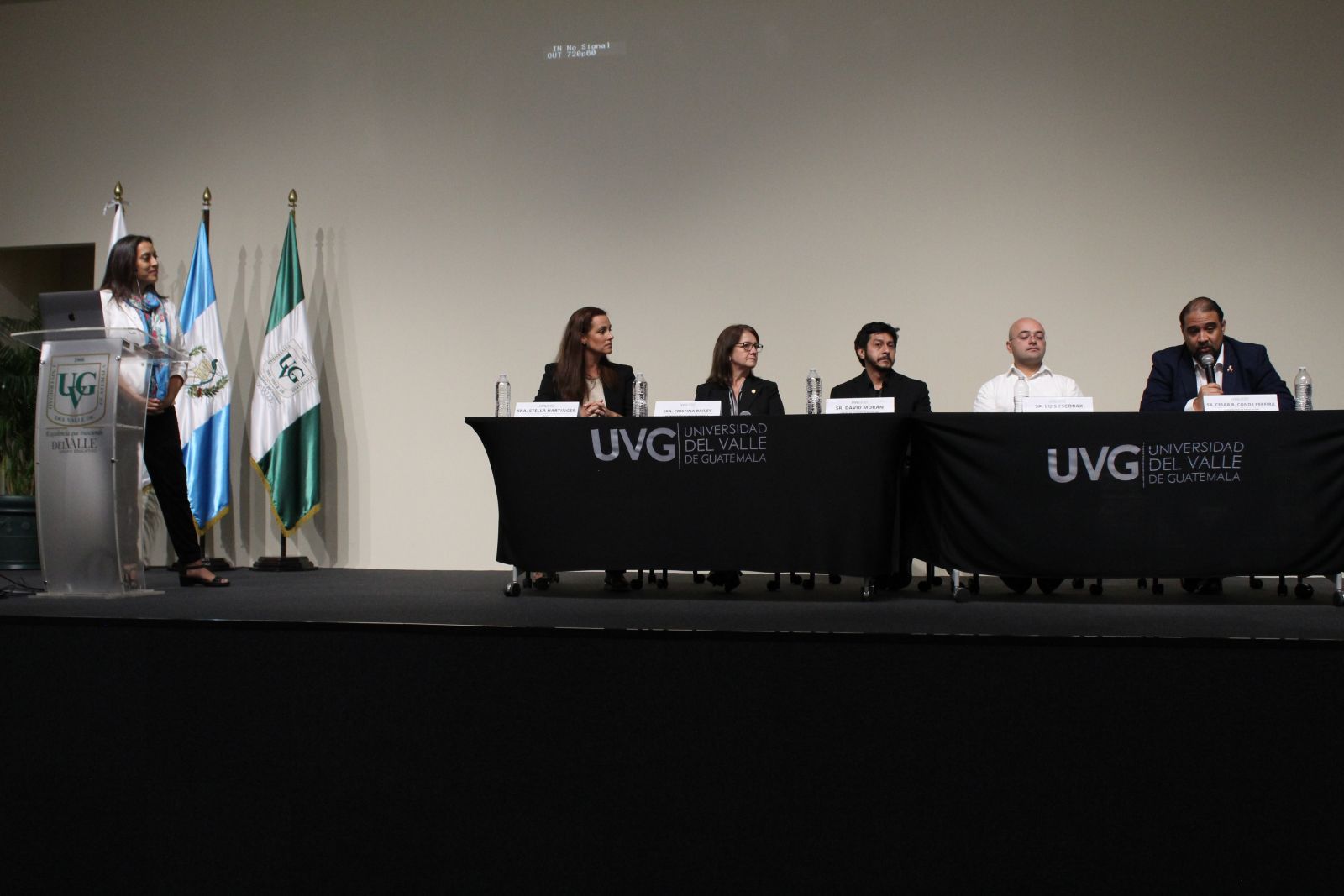
Presented by one of the lead authors, Stella Hartinger, a researcher specializing in environmental health, the report revealed alarming data on the increasing exposure to changing climatic conditions in the Latin American region. Luis Escobar, a professor in the Department of Fisheries and Wildlife Conservation at Virginia Tech University and co-author of the report, shared his research on the impacts of climate change on health, focusing on the application of ecology and biogeography to the study of infectious diseases. David Morán, Associate Director of the Center for Health Studies at UVG, presented specific data for Guatemala, highlighting the significant increase in exposure to heatwaves and their adverse effects on health and labor productivity.
It was emphasized that all Latin American countries have experienced a rise in environmental temperatures, with significant impacts on public health, especially among vulnerable groups such as children and the elderly. Additionally, the scientific diplomacy projects developed by members of the IAI’s Science, Technology, and Policy Fellowship Program (STeP) were presented.
The event concluded with a panel discussion moderated by Anna Stewart-Ibarra, Executive Director of the IAI, which included experts from UVG and Virginia Tech and ministerial representatives from the Ministry of Environment and Natural Resources and the Ministry of Public Health and Social Assistance of Guatemala. Key recommendations from the report were discussed, including the development of intersectoral public policies, the acceleration of the energy transition, and the increase in climate financing.
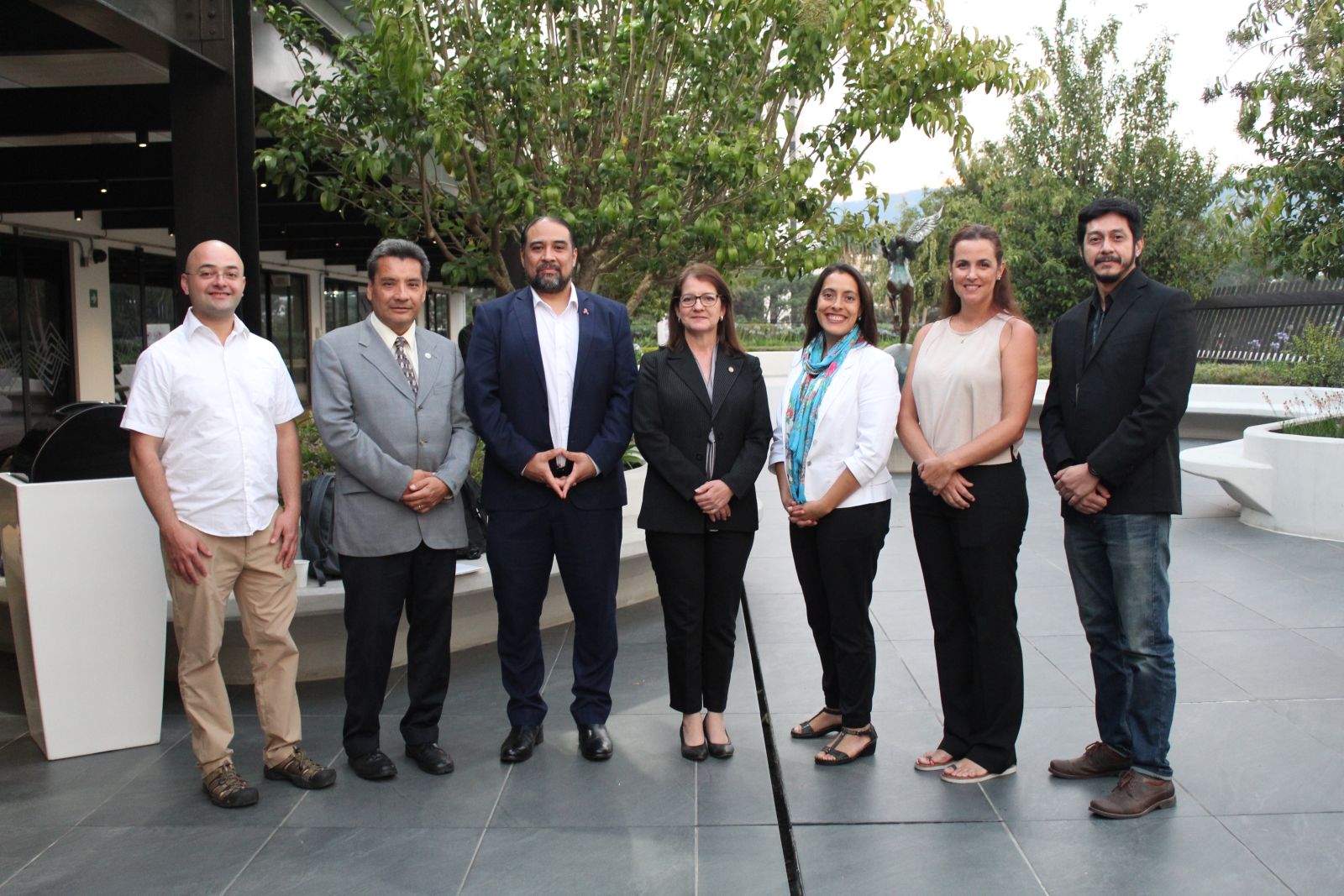
In summary, the event provided an important platform for analyzing the impact of climate change on health and exploring strategies to address these challenges in the Latin American region.
The recording of the event is available at: https://youtu.be/ixyFd15KGdE
IAI Newsletter 2/24
Meeting of the Advisory Board of the IAI’s Science Diplomacy Center
From April 23 to 26, 2024, an important meeting of the Advisory Board of the Science Diplomacy Center (SDC) of the Inter-American Institute for Global Change Research (IAI) and collaborators took place in Guatemala City.
The first day was marked by opening remarks from Anna Stewart-Ibarra, Executive Director of the IAI. At the meeting, the members of the Advisory Board analyzed the IAI’s new strategic plan, the SDC reports, and an assessment of the center’s strengths and opportunities. In addition, the curriculum and training materials for the next course in scientific diplomacy were presented.
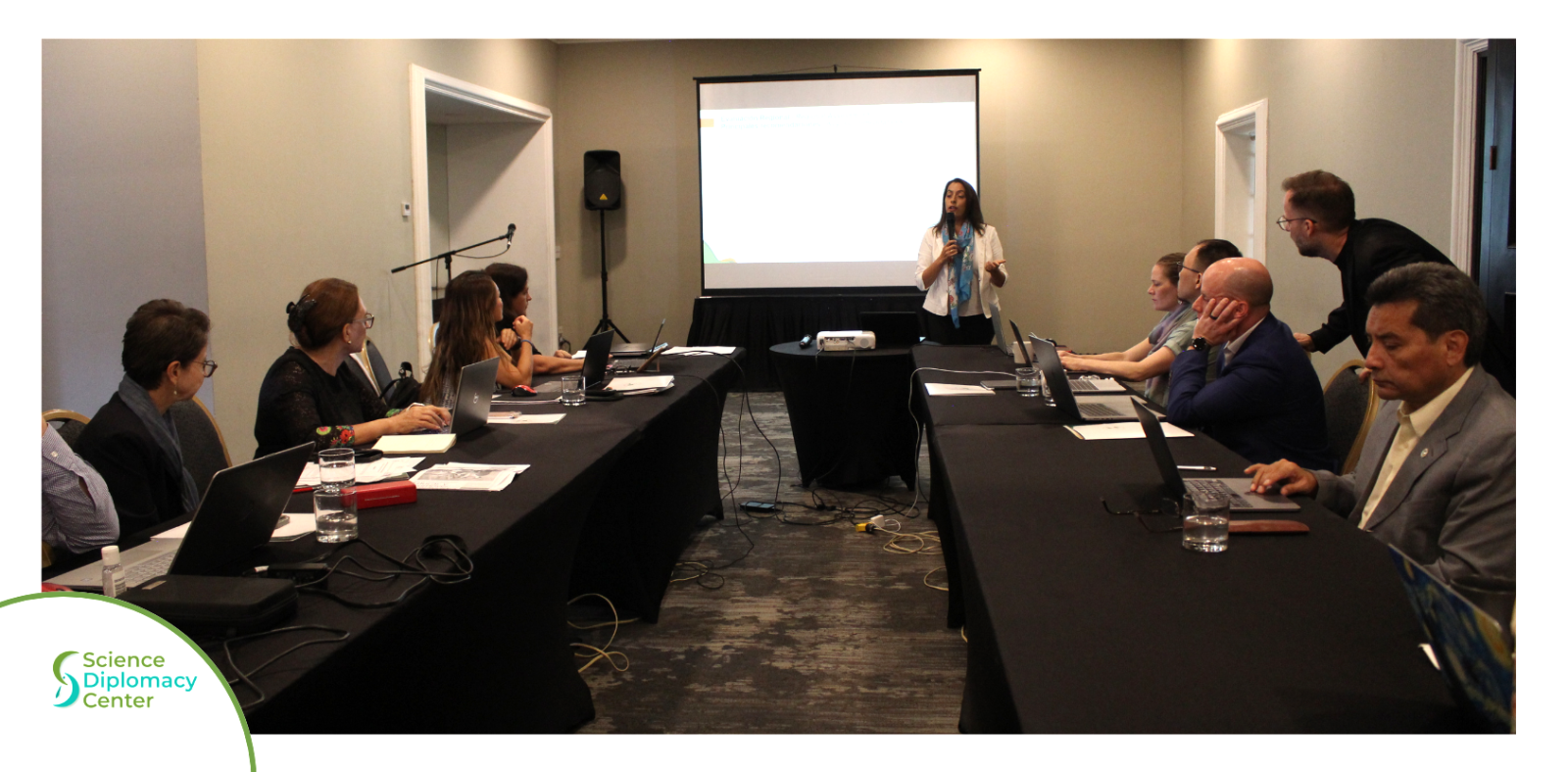
During the afternoon, participants attended the launch of the Lancet Countdown Latin America report organized with support from the IAI, after which fellows of the IAI’s Science, Technology, and Policy Program (STeP) presented their science diplomacy projects.
NOTA4.png)
NOTA4.png)
In the following days, the Advisory Board exchanged ideas and perspectives on future opportunities and commitments and held a planning session organized by working groups, followed by a plenary discussion.
Before concluding, the board members gave their feedback on the STeP program and the presentations of the fellows’ projects from the previous day. The meeting concluded with the planning of activities and a reflective closing on the next steps to follow.
NOTA4.png)
To learn more about the IAI’s Science Diplomacy Center, visit: SDC
IAI Newsletter 2/24
IPCC summaries summarize opportunities for climate action
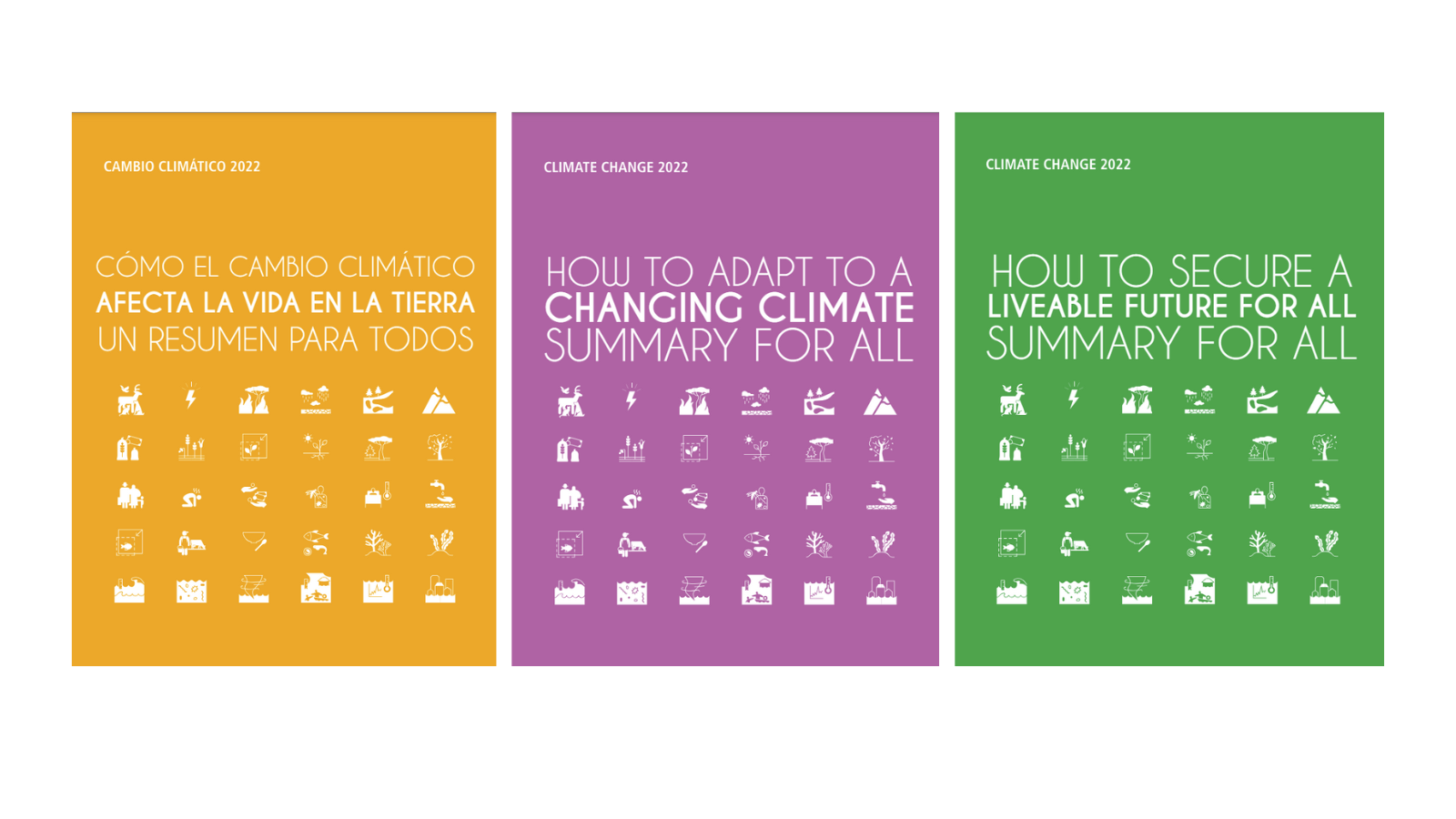
The Intergovernmental Panel on Climate Change (IPCC) mostly produces publications in English, limiting access to information in Latin America. This time, the Inter-American Institute for Global Change Research (IAI) has decided to make available the Spanish translations of the summaries of the Working Group II (WGII) of the Sixth Assessment Report (AR6) of the IPCC.
“In this report, the interdependence of climate, biodiversity, and people is recognized, and natural, social, and economic sciences are integrated more effectively than in previous IPCC assessments,” explained Hoesung Lee, IPCC Chair. “By restoring degraded ecosystems and conserving, effectively and equitably, between 30% and 50% of terrestrial, marine, and freshwater habitats, society can benefit from nature’s capacity to absorb and store carbon, and we can accelerate progress towards sustainable development,” according to Hans-Otto Pörtner, Co-Chair of IPCC Working Group II.
As Debra Roberts, Co-Chair of IPCC Working Group II, explains, “This way, different interests, values, and worldviews can be reconciled. Solutions will be more effective by combining specialized scientific and technological knowledge with indigenous and local knowledge. If we fail to achieve sustainable and climate-resilient development, we will have a future for people and nature that is far from optimal.”
The Working Group II Report provides a detailed assessment of the impacts and risks of climate change and adaptation to it in cities where more than half of the world’s population lives. The health, lives, and livelihoods of people, as well as essential assets and infrastructure, including energy and transportation systems, are increasingly affected by hazards such as heatwaves, storms, droughts, floods, and slow-onset changes like sea-level rise.
Growing urbanization poses significant challenges when there is no planning and high levels of poverty and unemployment. Still, cities can mitigate the impacts of climate change by providing clean water and utilizing renewable energies.
The three summaries that will be published gradually are expected to be useful for citizen advocacy, policy debates, and education in Spanish-speaking countries. The first document, “How Climate Change Affects Life on Earth: A Summary for Everyone,” is available in Spanish for download at: https://iai.int/en/news/detail/Summary-For-All-How-Climate-Change-is-Impacting-Life-on-Earth
To return to the description of the three summaries, see: https://www.ipcc.ch/report/ar6/wg2/resources/external-resources.
IAI Newsletter 2/24
Visions of change: innovation, conservation and restoration at the service of the environment

By Diego Hurtado T.
This edition of “Visions of Change” explores how innovation, knowledge integration and laws come together to promote peace and environmental protection. From the Bolivian Amazon to the urban rivers of Panama, passing through the integration of ancestral and scientific knowledge in North America, we present inspiring stories of commitment to our planet.
Innovative measures to address pollution of the Juan Díaz urban river in Panama
For the inhabitants of Panama City, the Juan Díaz River is essential; It has witnessed its urban expansion and is one of the most important tributaries of the country. However, like other bodies of water in the city, it presents alarming levels of pollution, which affects the communities and species that live on its banks. For this reason, the Marea Verde Association, with the Wanda Díaz project, has combined innovation and environmental action to achieve sustainable solutions. Wanda is “the first hydraulic wheel in Latin America, which traps floating solid waste from the river, preventing it from reaching the sea”, combining the capabilities of hydraulic and solar energy. In addition, it uses the support of a floating bio-barrier that captures waste and sprays it with non-toxic bio-enzymes that eliminate bacteria that cause bad odors. As of 2023, both structures had managed to capture 45,000 pounds of plastic for recycling and more than 264,000 pounds of floating solid waste.
Creation of the Great Manupare to protect 452,639 hectares of Bolivian Amazon forest
Social networks have helped us to present data about the relevance of the Amazon and its complex situation; Increasingly, we learn about the many challenges facing this biome of planetary importance. From deforestation related to illegal mining to intentional fires to dedicate the land to livestock exploitation, the images we receive about this area of the planet are not encouraging.
Fortunately, it’s not all bad news. In Bolivia, the creation of the Great Manupare natural area through municipal law 009/23 seeks to provide protection to 452,639 hectares of Amazon forest in the department of Pando, where the forests have an optimal state of conservation. Due to its extension, this area connects with other reserves and protected areas, covering up to 10 million hectares of the Bolivian Amazon.
This decision is the result of the joint work of different local actors such as the Association of Municipalities of Pando (Amdepando), as well as the NGO Conservación Internacional y Central de Campesions Sena-San Lorenzo. These actions, which can have an important local impact, serve as a model for other communities with access to the Amazon that could adopt similar initiatives.
Restoration proposal in the Andes may receive support from the UN
A regional project that seeks to impact ecosystems at the point of no return received recognition as a United Nations Flagship Global Restoration Initiative by UNEP and FAO. This project has been advanced by the social movement Andean Action, inspired by the Peruvian non-profit organization ECOAN (Andean Ecosystem Association), which seeks to restore some 30 million trees in Argentina, Bolivia, Chile, Colombia, Ecuador, Peru and Venezuela by 2030. The objective is to replicate the community reforestation model in an area of 800,000 hectares so that inhabitants of Andean communities can benefit.





